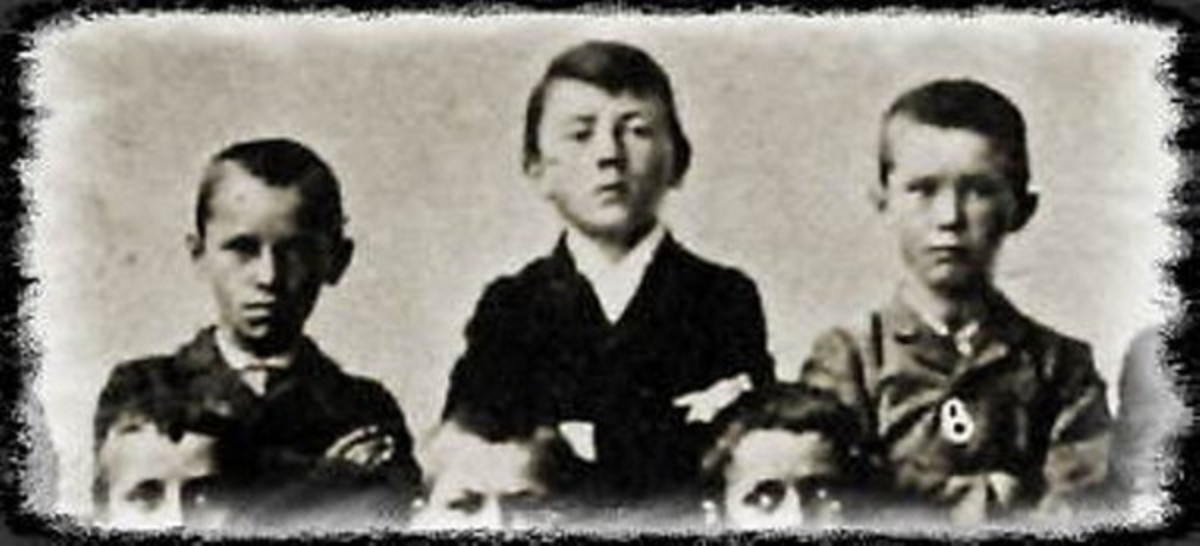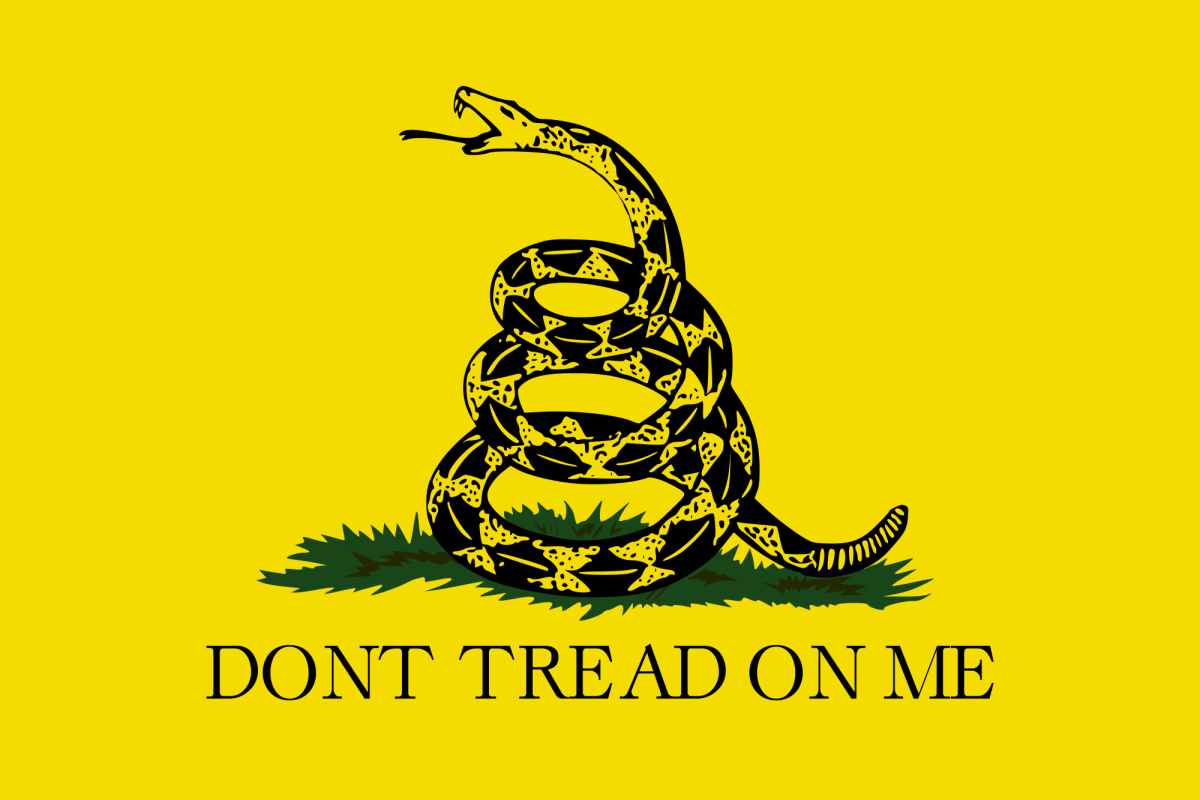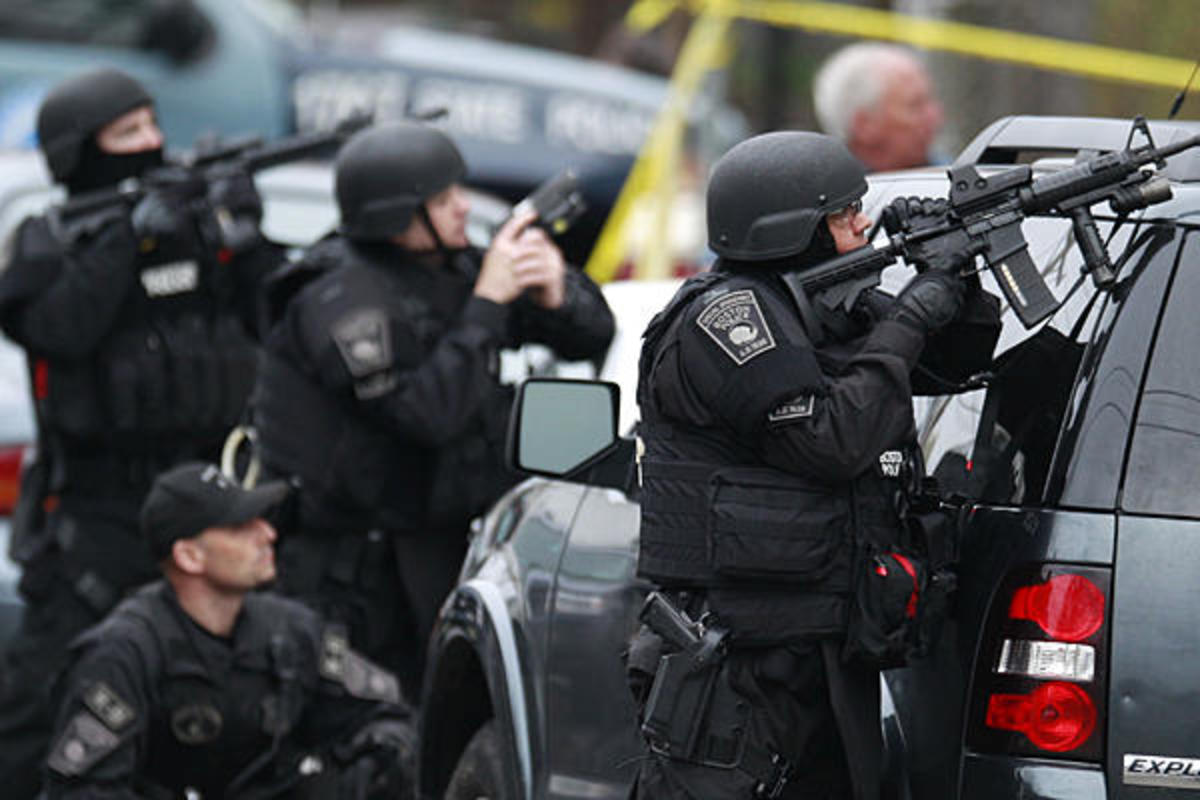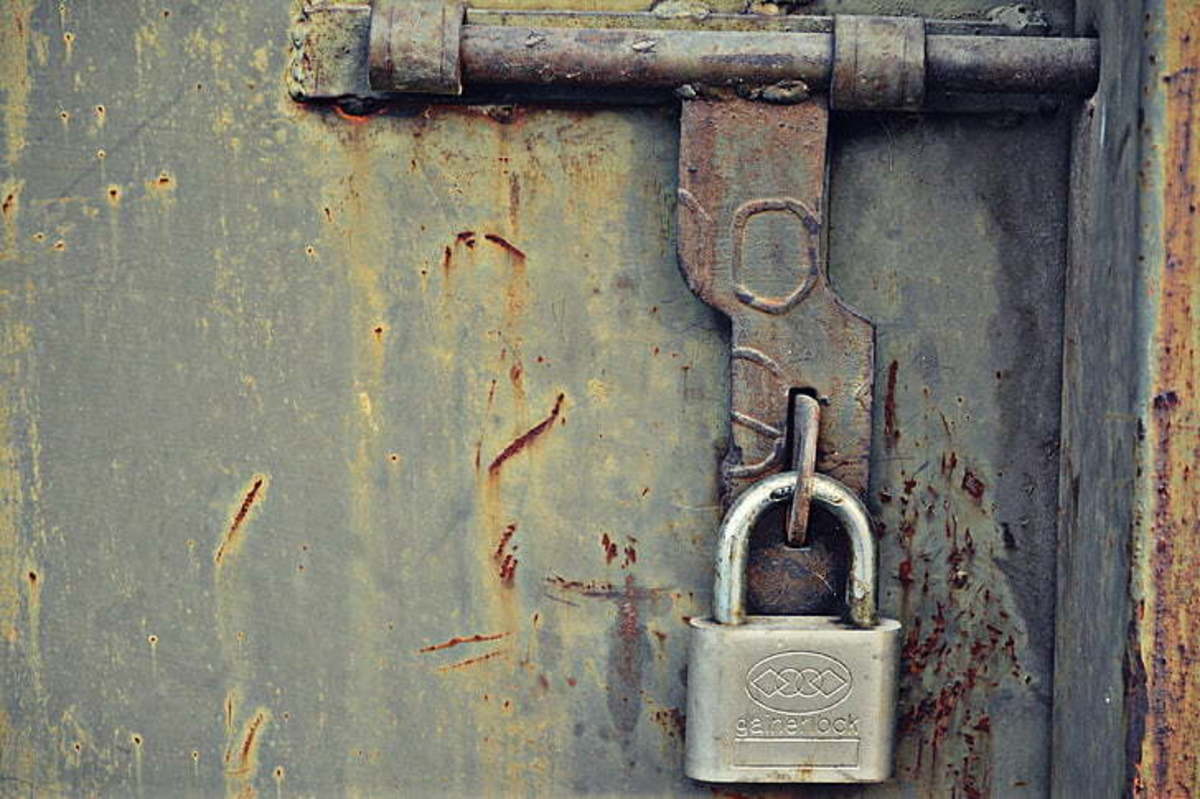How one country implemented gun control and shot itself in the foot.
The attempt to register firearms -- at a cost of $2 -- 4 billion dollars. (No one seems to know for sure.)
In 1995, Bill C-68, the strictest gun control legislation in Canadian history, passed three readings in parliament, was approved by the senate and enacted as the law of the land. Part of this legislation called for the implementation of the Firearms Registry, where all firearms, not just handguns (already controlled, and requiring a permit) but the long weapons, shotguns and rifles, must now be licensed and registered. For the purpose of this article, the term firearm will refer to long weapons.
What followed can only be considered one of the most expensive comedies ever to play on the world’s stage.

Gun ownership isn't a constituitionally enshrined right for Canadians, but they do love their firearms.
One thing about growing up in rural Alberta, you grew up with guns. Ours was the only household I knew that didn’t contain one, but then my dad was an immigrant from England, a veteran of WWII and never wanted to see one again in his life. He should have picked somewhere else in his search for a new home, because guns were a fact of life in our locale back then.
Every second pick-up truck you saw, had a gun rack in the back window.
We lived near my aunt and uncle, and there in their dining room, in a beautiful rubbed-walnut, glass-doored cabinet, proudly on display for all to admire, lived the collection of rifles and shotguns my uncle used for hunting, protecting the livestock and on more than one occasion, to chase off intruders from the secluded farm site.
Growing up with guns, handling them, actually using one once to shoot a wild dog that threatened my pet, I never gave them much thought. I don’t own any myself. I’m neither for nor against gun control, possessed of a completely ambivalent attitude to the issue. I’m sure fewer guns would mean fewer shootings, but not so sure it would mean fewer murders. There’s always bludgeoning, stabbing, strangling, smothering, poisoning – 50 ways to kill your lover.
I am against wasting public money, and that’s what this is about.
Fourteen years ago, this somewhat non-existent issue hit the political arena. It was 1995, enter bill C-68.
The government said it was an important step to decrease violence in our society, which I found somewhat surprising. Statistics Canada sent me some interesting information about that year:
1995 population of Canada – 30,000,000 give or take a few.
Number of homicides – 586
Homicides by shooting – 61
I’m sure the 61victims and their families might disagree, but it seemed an acceptable ratio, considering those of other places. Certainly brings into question the need to set up yet another bureaucracy – perhaps the one thing we do best. More people die by drowning – why not fence off all the lakes?
And how would it work, and what would it cost, we wondered.
At the time, the government said the registry would cost about $120 million, but revenues generated by the registration fees would offset most of that, and the taxpayers would only have to fork over a measly $2 million.
And it became law.
But the people resented the law, and initial registration trickled in with approximately 576,000 firearms registered in 1998. Now, you have to understand, Canadians love their firearms and nobody knows how many there are in the country. The government estimate of around 8 million is very conservative. Unofficial estimates say between 15-17 million firearms or approximately one firearm for every two Canadians.
By 2000, the newly formed agency, the Canadian Firearms Program (hereinafter known as the CFP), reported implementation costs rising. Were we surprised? Certainly not – we are a pragmatic people, long cognitive of the expanding nature of government programs. But this was only the beginning.
In December of 2001, we learned the costs had risen to $527 million. Why? Well, apparently the CFP had trouble keeping track of the license fees collected. Why? The computer system used to process the applications wasn’t working very well and those problems could not be resolved without “massive change” and “significant investment.”
Then in 2002, Sheila Fraser, Auditor General for Canada, tabled her yearend report. Number one on her list, before the usual horror stories of waste, toadyism and abuse, the first to be blasted by her sharp tongue was the CFP whose costs are now $629 million. Here’s a sampling of some of the expenditures:
$2 million to help police enforce legislation. Yes folks, if you don’t have a piece of paper for your old Cooey 22, you can face up to ten years in jail – not that anyone has -- yet.
$60 million for public relations programs. That’s right, all those millions for those boring commercials that interrupted Hockey Night in Canada, to tell us how we’ll all be safer once every gun in the country is on a list compiled by a computer that isn’t working right.
$227 million for computer costs. Did I mention it wasn’t working?
$332 million for other programming costs (to fix it?) and to pay staff (now 1, 800 persons) to process the forms (because the computer wasn’t working?)
And – oh!oh! – those offsetting license fees for the past four years -- $140 million, more or less – we don’t know -- the computer still can’t track them properly.
January 1 of 2003 was the deadline for gun owners to register “non-restricted” weapons. (Who, what kind of idiot, would register restricted ones if they owned them?) The CFP reports 5.8 million firearms are registered which the government claims is 75% of the estimated total of 8 million firearms and isn’t this just such a great success? Never mind that according to their own import and export records, it is apparent there must be at least 16.5 million firearms in the country at this time.
Two daring Canadians challenge the government to arrest them for holding unregistered weapons. One is arrested, but he is not charged under the Firearms Act, that piece of legislation now costing the Canadian taxpayers somewhere in the neighborhood of $600 million. No, he was charged with public mischief and received a resounding slap on the wrist.
In March 2003, the federal government votes to bolster the CFP with a further $59 million and we find out the costs to date somehow now approach $800 million.
In early 2004, two interesting developments follow closely, one just behind the other.
Then Prime Minister, Paul Martin says, “We are committed to gun control and we are committed to the registration of weapons, but at the same time, common sense dictates that there have been a number of problems. They will be looked at and dealt with.”
Thirty days later, the CBC news service leaks documentation that suggest the costs of the Canadian Firearms Program have been under-reported by 50%, and the actual costs to date are $2 billion – so far. Keep in mind there are only 31 million Canadians with an estimated 8 – 16 million firearms.
Shortly after this journalistic bomb hits a stunned nation, still sitting with 8.5 million unregistered firearms, the government announces, days before an election call, the fees for registering and transferring firearms will be eliminated (what about that offsetting income you promised?) and Ottawa will limit its spending on the gun registry to $25 million a year. Whew, there’s a relief! – Chicken feed. And – are you ready for it – all previously paid registration fees will be refunded, as soon as the computer is working and we know who paid what.
But, the 2004 Report of the Commissioner of Firearms, estimates that the cost of running the registry for the year ending December 31, 2004 at just less than $100 million, and -- take heart -- should drop to $85 million in fiscal 2005. Excuse me – the boss just said $25 million a year. Didn’t you hear?
May 16, 2006, the Auditor General, Sheila Fraser, who is shocked, reports that the former Liberal government twice misinformed Parliament about tens of millions of dollars --only tens? -- in overspending at the Canada Firearms Centre. The planned computerized gun registry is now three years overdue. Well, didn’t they tell you; it’s still not working?
But, we are so much safer now that maybe less than half the firearms in Canada are duly registered with the CFP, aren’t we?
Let’s check with Statistics Canada:
2006 Population of Canada: 31,613,000
Number of homicides: 605
Number of homicides committed with a firearm: 190
But, it’s a success, according to the Liberal party.
“Important client services and public safety results have been achieved.” Well first, no one is a client of the CFP. They have been forced to get a piece of paper for their firearm with the threat of severe criminal charges. It’s not a service, guys.
“A national survey shows the substantial majority of Canadians (74%) support the current gun control legislation.” An independent poll conducted in April 2004 by JMCK Polling states: a substantial majority of Canadians (76.7%) believe the federal gun registry should be scrapped. And they’re getting a mite pissed off about it, too.
“Statistics show significant decline in the use of firearms in homicides. These trends coincide ….with the introduction of the Firearms Act in 1995.” Not according to Statistics Canada, the government keeper of all things numerical. They show that homicides by firearm have tripled since 1995.
“About 6,000 firearms have been traced in gun-crime and firearm trafficking cases within Canada and internationally.” You note they don’t say they’ve been traced by the CFP. If criminals don’t register their guns-- and most crime guns are smuggled into the country -- what good can a registry of legally owned guns do? And let’s face it, what kind of brain-damaged crook will use a weapon he has registered?
“The Government has re-affirmed its commitment to the Program as an important element of its approach to public safety.” On November 24, 2004, the Commissioner of Firearms, Bill Baker, admitted before the Standing Committee on Justice that 176,000 prohibited gun owners, and 37,000 persons with restraining orders against them have registered weapons.
March 10, 2004 – Toronto Police Chief told the Toronto Star, the system has not helped Toronto police solve a single homicide.
June 2, 2004, Calgary Police Chief, Jack Beaton, told the Calgary Herald, “Our investigators run into numerous situations where registration information isn’t accurate.”
January 22, 2004, CBC Radio in Saskatchewan reported, “Police in Regina say they haven’t yet had a lot of use for the gun registry.” Sgt. Rick Bourassa says, officers do not use the database.
December 4 2003, Officials from the Police Association of Ontario said that they fail to get the information requested from the registration system 95% of the time.
And then, the finale, the punch line, the kick in the ass came along.
June 19, 2006 “Stephan Harper’s Conservative government introduces legislation to abolish the long-gun registry. Public Safety Minister, Stockwell Day, introduced a bill to amend the Criminal Code and the Firearms Act so that owners of non-restricted rifles and shotguns will not have to register their weapons.” Well he’d better; he got elected on that promise.
It’s a good thing for Alberta. It’s estimated there are more unregistered firearms in Alberta than are registered in all the rest of Canada.
Does one laugh or cry? It’s impossible to get an accurate account of how much was spent on this needless and ridiculous program. In early 2004, expenditures were $2 billion, and now in 2009 we hear whispers of $4 billion, but the entire fiasco has been such an embarrassment, we’ll never know.








